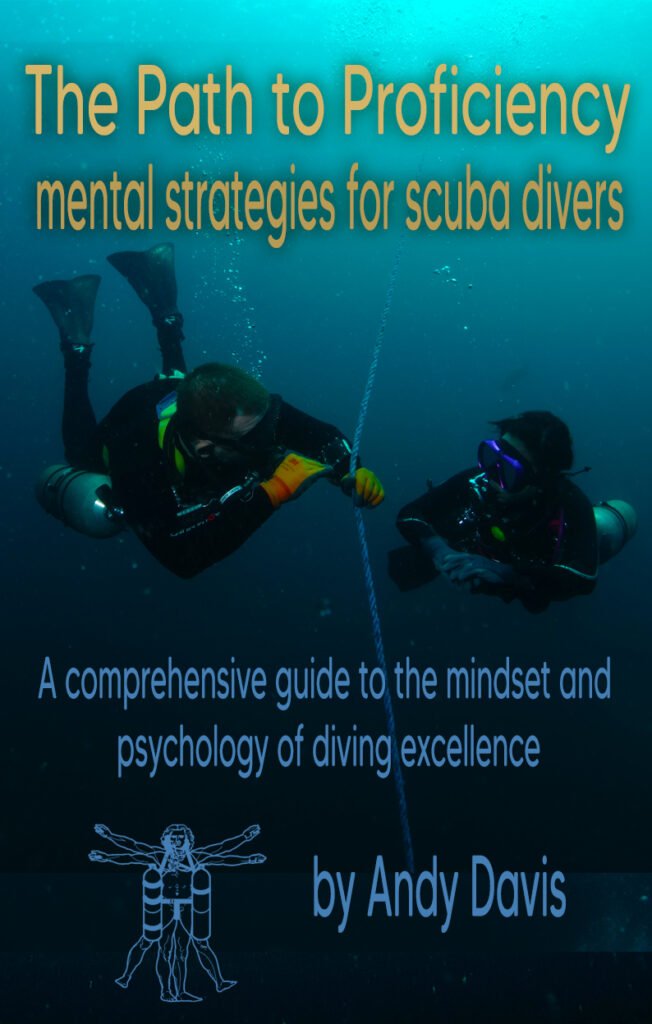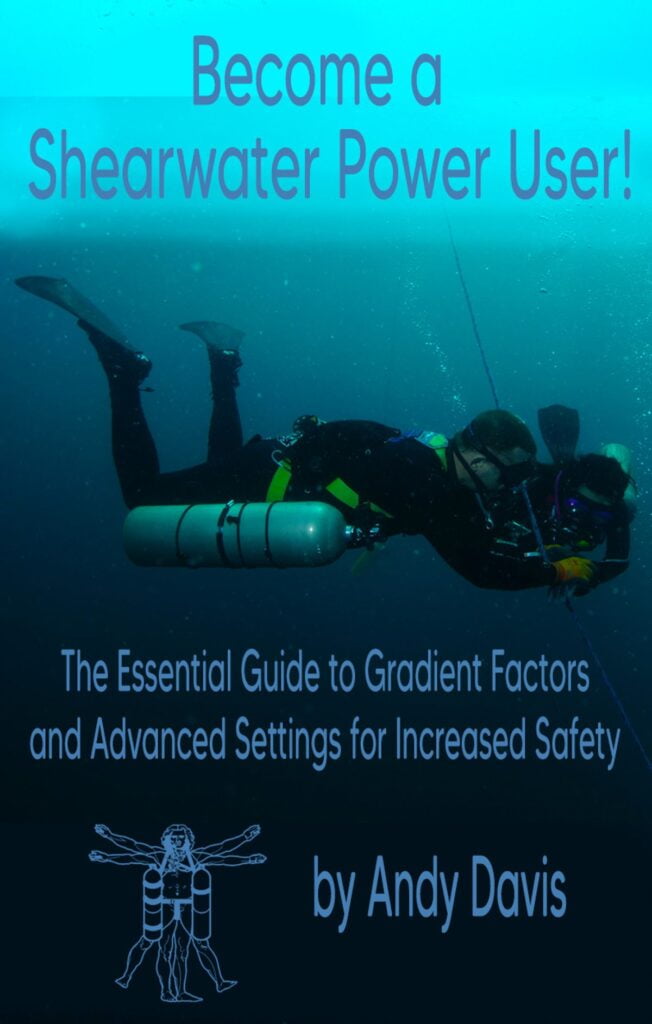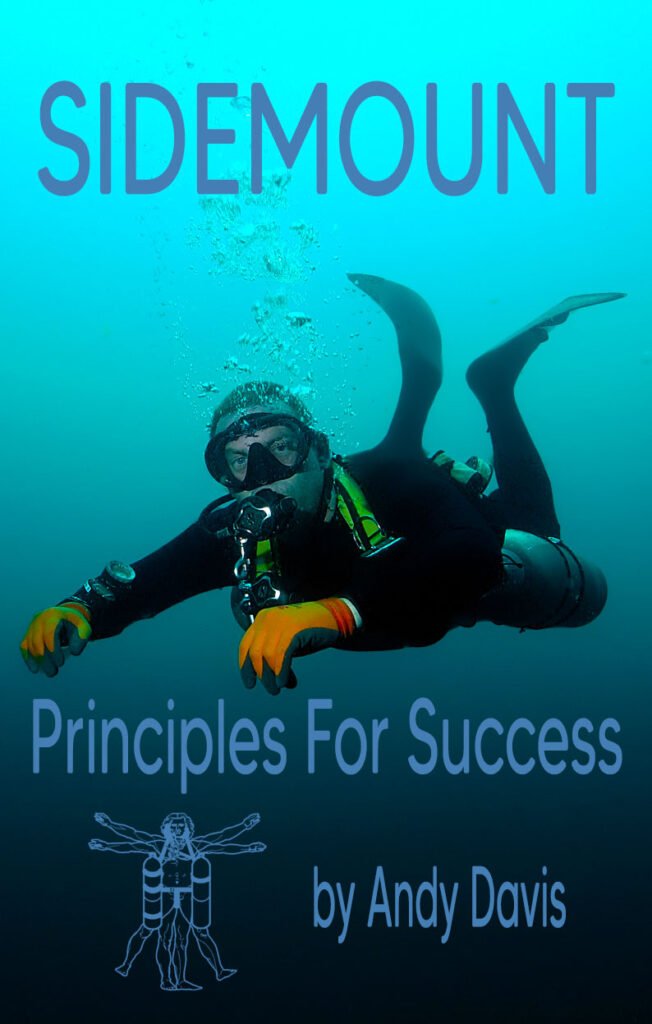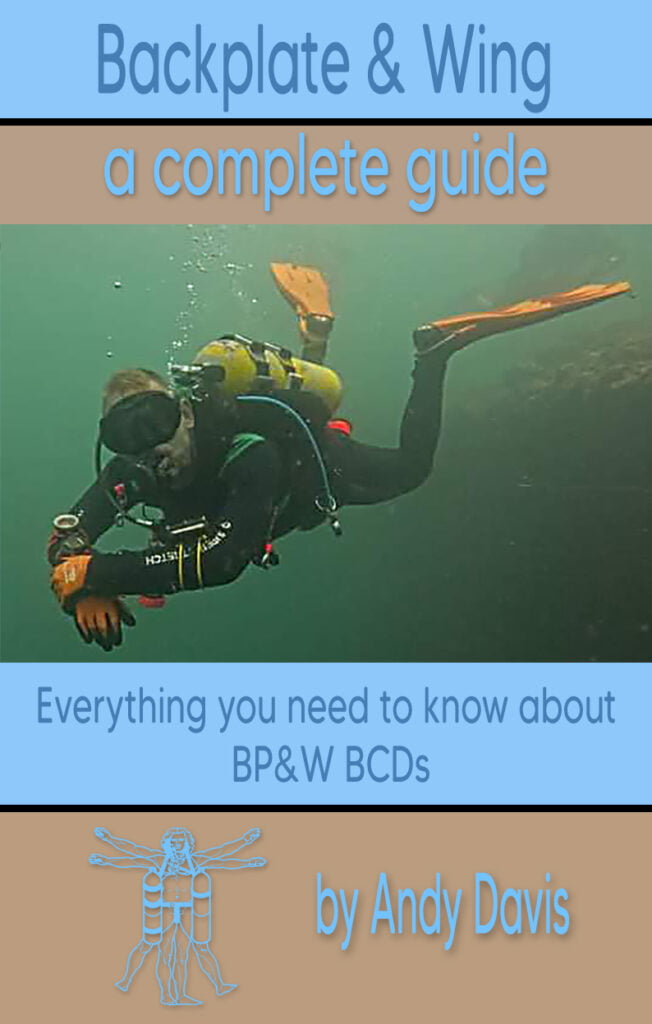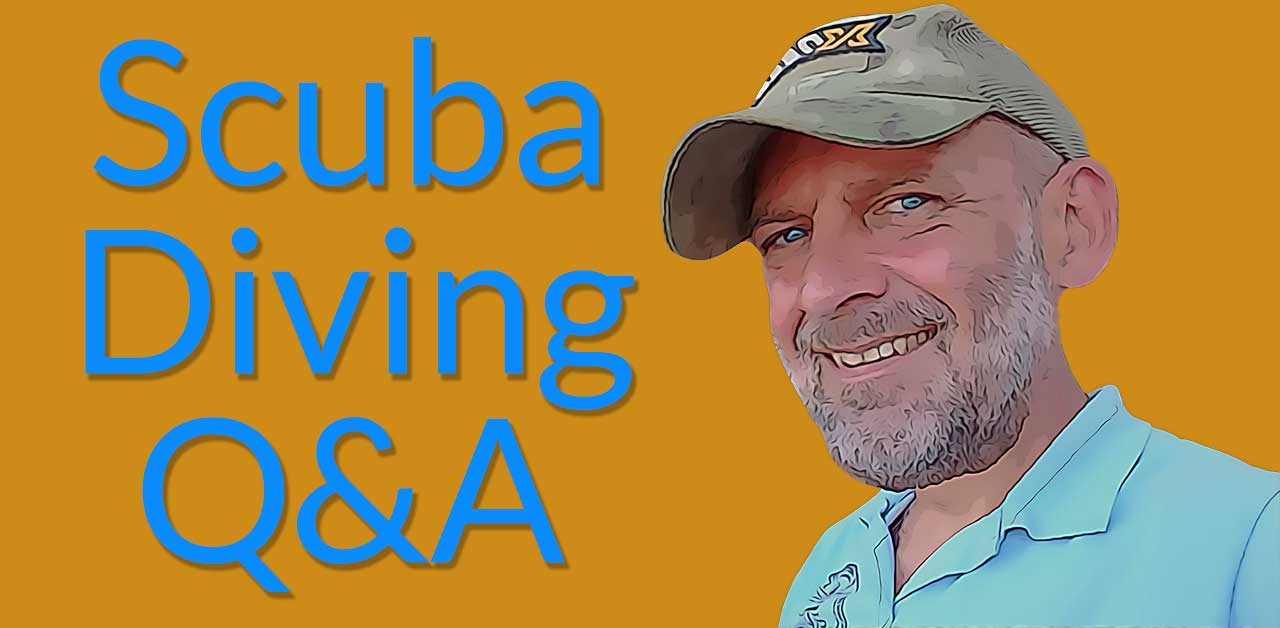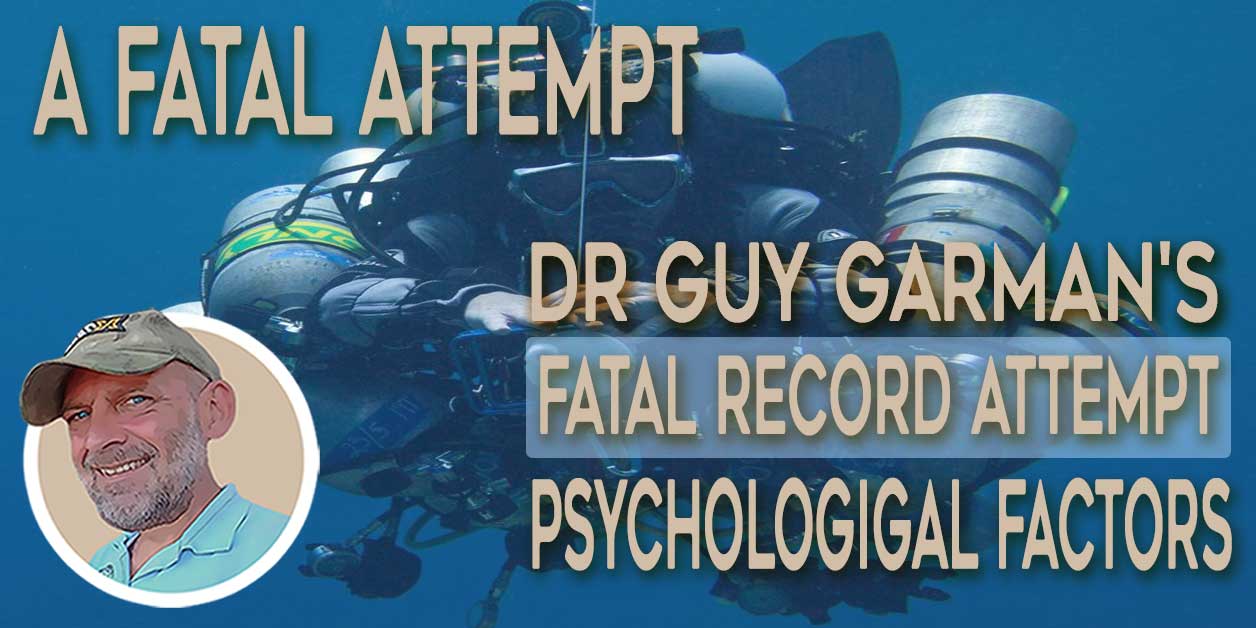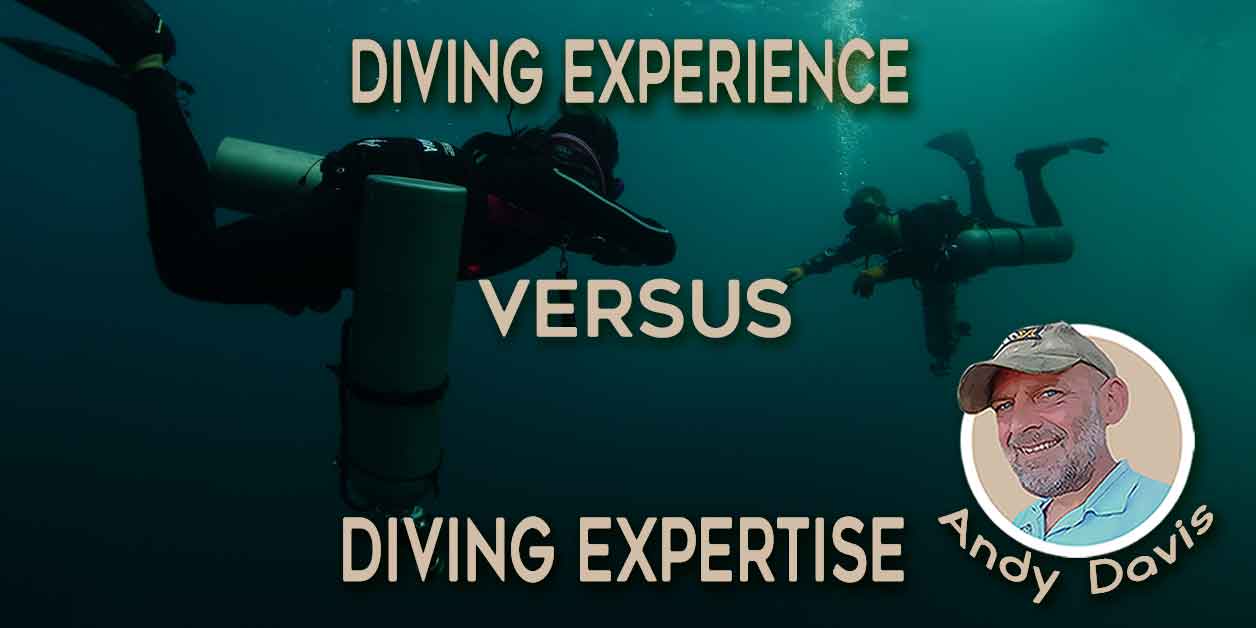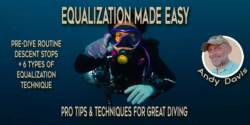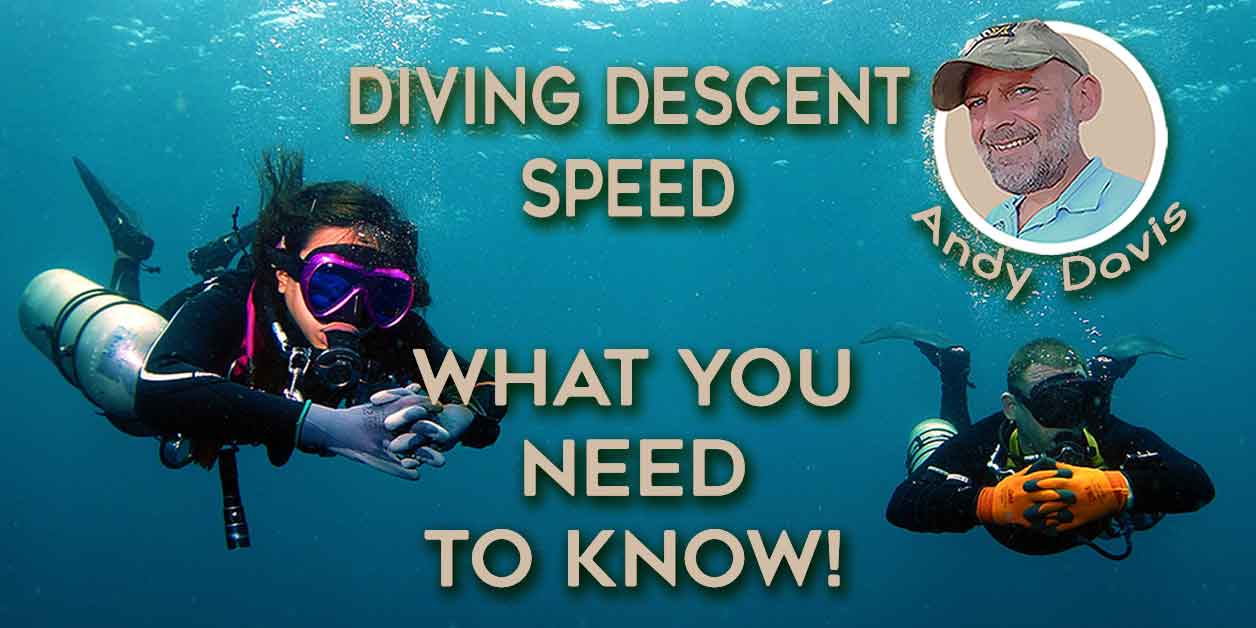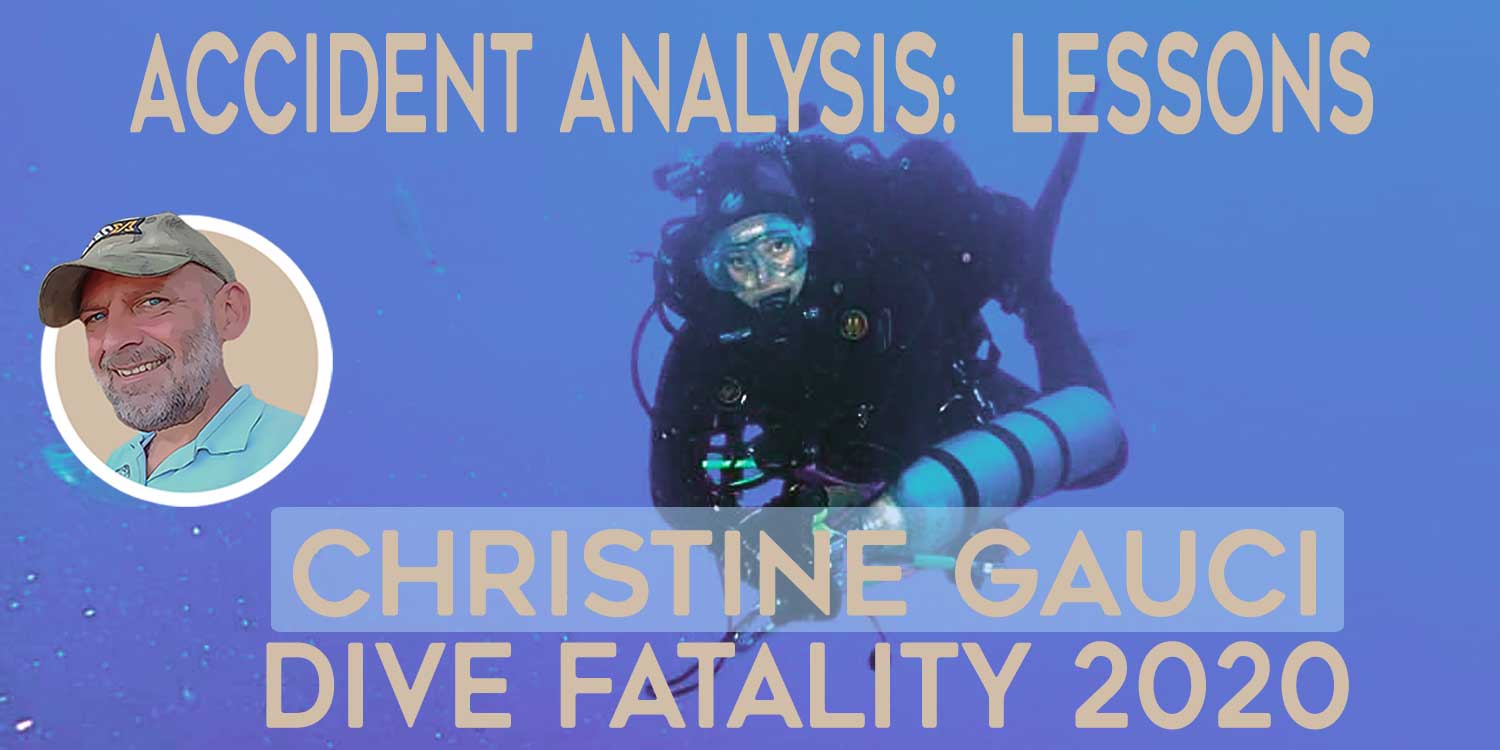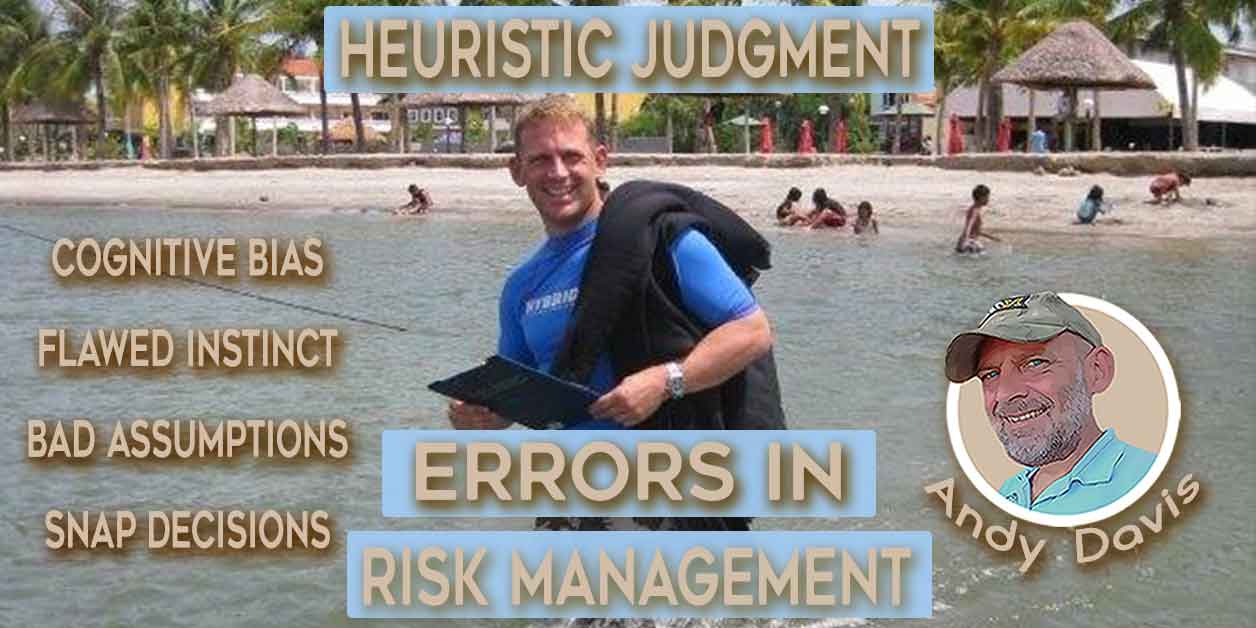Diving Stress Management: Scuba Diver Panic & Anxiety
Scuba diving is blissful activity, but on rare occasions, things can go wrong. When the worst happens, a diver’s survival will depend on their response. That response will be determined by their ability to deal with stress. I’m not a psychologist, but as a veteran technical diving instructor with over 30 years of dive experience, I have noticed some trends in real-life diving stress management.
- 65% of divers have experienced panic underwater
- Panic impedes judgment and performance
- Accidents happen as a result
This article examines what really causes acute panic responses. Furthermore, it suggests how divers can effectively develop their diving stress management to deal successfully with underwater emergencies.
The role of panic in scuba diving incidents
Panic is a major danger to scuba divers because survival instinct is counter-intuitive to safe diving practices. A scuba diver in acute panic will revert to instinctive self-preservation. As a result, they won’t apply the techniques that they were taught. This situation results in otherwise avoidable scuba diving fatalities and injuries.
Most divers have heard of the fight-or-flight survival mechanism. This describes what is referred to as the ‘acute stress response’.
Whilst underwater, confronted with an acute fear of drowning, there is very little opportunity for the fight element to occur. Thus, the flight response is typically dominant when a diver exceeds their psychological capacity for rational response.
Which divers are more prone to panic?
Psychology studies in scuba diving have illuminated many interesting facts about diver personality traits and their behaviors.
For instance, scuba divers with high neuroticism (low emotional stability) tended to exhibit irresponsible behaviors, such as damaging coral reefs and marine ecosystems.
In contrast, divers higher in trait agreeableness, extroversion, and openness were more likely to demonstrate responsible underwater behaviors.
Trait anxiety has been identified as a key marker of panic-prone divers.
Trait anxiety is a consistent predisposition to perceive threat and consequently experience anxiety across various situations.
An above-average score in this trait reliably signals a greater risk of panic during scuba training. Even experienced divers are more panic-prone if they are high in this trait.
If you want to know your trait anxiety score, take the Spielberger State-Trait Anxiety Inventory (STAI) test HERE.
What causes an acute panic response in scuba divers?
To understand diver panic, it is beneficial to consider the factors that can lead to it. Essentially, it occurs when the scuba diver doesn’t have a solution to what they perceive as a life-threatening situation.
Without any solution to attempt, they resort immediately to the irrational ‘flight’ response.
Exceeding comfort zone
Scuba diving panic is really about the diver’s comfort zone. It can be assumed that the diver has substantially exceeded their diving comfort zone.
This can be thought of as the scope of diving they feel justifiably confident to conduct. In turn, that confidence has to be a product of having reliable and effective responses to foreseeable problems.
Individual stress resilience
Additionally, the diver would have little innate stress resilience. Any safety-threatening stressor is likely to provoke an adrenaline dump, which they are not capable of controlling. As a result, their actions will arise from their unconscious primate brain, not their logical and reasoning mind.
If the scuba diver does have a solution to preserve their safety, the fight-or-flight response will be postponed. This happens when the diver possesses a level of ingrained skill, which will be their first reaction.
Recognizing that a solution is available can be enough to overcome panic. In this case, the adrenalin dump improves their focus, heightens their reactions, and gives them strength.
CO2 narcosis
No article about diving stress management would be complete without mentioning the role of CO2 narcosis in triggering anxiety and panic. I have personally observed incredibly stress-resilient divers succumb quickly to intense anxiety because of high CO2 retention.
CO2 is 25x more narcotic than nitrogen. In addition, it is metabolized within the body, not slowly absorbed at depth. Exertion, fast descent, poor quality dive gear, and diving with breathing gas above recommended gas density limits can all provoke CO2 narcosis.
CO2 narcosis is characterized by inexplicable and overwhelming anxiety. Additionally, it is usually accompanied by rapid breathing and confusion. As a result, divers often feel compelled to bolt to the surface.
It is important to note that CO2 narcosis is a physiological malady, not a psychological state. Accordingly, it is not a situation where the victim can hope to apply diving stress management.
The usual advice to “stop, think, and act” will not overcome the CO2.
Instead, the immediate response must be to lower CO2 levels in the body. Breathe deeply, minimize exertion, and ascend in a controlled manner until the symptoms alleviate.
Scuba diving stress management and comfort zones
Most diving students start training with a small comfort zone underwater. Subsequently, that comfort zone increases as they develop experience.
Whilst the comfort zone remains small, even the most minor problems can trigger irrational self-preservation responses. When a threat to safety is perceived, the instinct is to flee to the surface.
It is the job of a diving instructor to preserve the student’s safety until they gain sufficient comfort. As familiarity with the underwater environment increases, so will the diver’s stress management capacity.
Fast-track diving certification courses are the antithesis of this responsibility. They deliver insufficient practice time to develop comfort zones before divers are certified.
What constitutes a diving comfort zone?
A scuba diver’s comfort zone is determined based on their capability to deal with worst-case scenarios. Uneventful scuba divers are comfortable. Unexpected diving emergencies are not.
If a scuba diver decides their comfort zone based only on successful dives, they are making a mistake. Diving at the limits of their comfort zone dictates that their comfort zone will be shockingly exceeded if anything goes wrong.
Consequently, a responsible scuba diving instructor will stress that concept in training. In doing so, they will ensure that diving students set their diving limits based on their confidence to deal with foreseeable problems.
In other words, scuba diving stress management can only be as strong as the weakest link. A scuba diver’s skill proficiency is a critical link.
Purchase my exclusive ebook!
A comprehensive guide to the mindset and psychology of diving excellence.
$20 Printable PDF Format, 298 pages
Diving stress management: Developing resilience
Regardless of the scope of a diver’s comfort zone, there are natural variances in how they react to stress. Some people have a high level of stress resilience. Conversely, some people do not.
Stress resilience can be a trait that someone is born with. More often, it is a learned capacity that they develop during their life. It is learned through exposure; and the innate confidence which arises from successfully overcoming challenges.
Participating in contact sports is known to develop stress resilience. Likewise, arduous military service or working in an emergency responder role can develop a person’s response to extreme stressors.
What matters is that the individual had stress exposure. They have to know they can deal with it.
Whilst stress management can be taught academically in scuba training, it cannot be developed through theoretical learning. Ultimately, the diver needs exposure to stressors. Imagining one’s ability in an emergency is not realistic. You have to know.
When scuba diving stress management cannot be taught
No amount of scuba training can benefit a diver whose innate stress resilience is so low that they will instantaneously panic. A scuba diver needs, at a minimum, to retain enough presence of mind to consider if a solution is available.
A minimum level of stress resilience has to exist to be safe as a scuba diver.
Military, technical, and professional diving training typically includes stress resilience testing. In contrast, recreational diving training tends to focus on making students as comfortable as possible.
As a result, divers have no opportunity to develop diving stress management.
I feel that it should be the responsibility of a diving instructor to teach students about their stress thresholds. How else will they understand their comfort levels and set limits in their diving?
Diving stress management cannot start until an individual knows what stresses them.
Purchase my exclusive ebook!
A comprehensive guide to the mindset and psychology of diving excellence.
$20 Printable PDF Format, 298 pages
Developing diving stress management
As I have already described, a diver’s stress management ability is determined by their innate stress resilience and their skill proficiency in resolving diving problems. As such, any training to develop diving stress management has to reflect those two factors.
Diving stress management cannot be learned academically. It is pointless to tell divers to “stop, breathe, think, and act” without actually developing their capacity to do so. Necessarily, stress management has to be learned as a practical skill.
Ingrained emergency responses
Repeating an emergency skill once or twice during training shows that a diver understands that skill. However, it does not prove the diver will apply that skill in a real-life emergency at a later date.
Practicing to get something right is not the same as practicing to never get it wrong.
To develop diving stress management during training, the scuba instructor must conduct ample repetitive deliberate practice. In doing so, they will ingrain appropriate responses into a diver’s unconscious working memory.
As a consequence, the skill becomes programmed as their default response, rather than the fight-or-flight reaction.
Put simply, enough repetitive practice re-wires the brain so that the trained response becomes instinctive. The natural panic response is overridden in that situation.
The goal is for a diver to react automatically with the correct procedure. When that happens, diving stress management essentially becomes irrelevant.
Emergency problem-solving
Of course, not every emergency has a predesigned response. Some situations are novel or require adaptation of existing responses. In these instances, stress management needs to occur as a prerequisite for problem-solving.
In this situation, the scuba diver will not have an immediate solution. Instead, they need to block off the fight-or-flight mechanism and retain their reasoning ability for long enough to design a solution.
Diving stress management is self-belief
As I have mentioned, learning mantras like “stop, think, act” is not particularly adept in achieving that. The diver has to have the reasoning ability to even remember the mantra.
Instead, the diver needs to ingrain confidence in their ability to problem-solve under pressure.
Diving stress management results from truly believing that you can get yourself out of trouble. When that occurs, there is no threat to your safety. Instead, there is only a solution to find. As a result, fear becomes perceived as a challenge.
The need for challenge and realism in scuba training
In scuba diver training, this capacity is only developed through challenging training. In turn, that requires realistic scenarios and drills that provide a controlled amount of stress.
Most importantly, those training drills and scenarios must demand more than a textbook, pre-ordained, response. The scuba diver needs to make judgments and decisions.
Additionally, they need to formulate a plan that involves multiple steps and necessitates evaluating their available resources. In this case, their learned skills become a toolset to be utilized, not the answer to a problem.
A blueprint for diver stress management development in scuba training
The following steps can be incorporated by diving instructors who care about ensuring their student divers remain safe in future emergencies.
Assess and develop diver comfort zones
Firstly, the dive instructor can develop diver comfort zones. They must evaluate students’ behavior and performance when they are placed under a controlled amount of pressure.
In turn, they should apply drills to remediate the weaknesses they observe. Finally, they should provide honest feedback to the student about their comfort limits. This is the opposite of what instructors commonly do.
As I have mentioned earlier, only seeking to increase student comfort during training leaves them vulnerable in the future.
Whilst it is great to have fun during scuba certification training, that cannot be the sole intent. If training is only fun, diving stress management cannot be taught.
Develop skills as instinctive automated responses
Secondly, the scuba instructor can provide divers with effective procedures and ingrain them into working memory with repetitive deliberate practice.
Train divers beyond merely getting it right; practice until they cannot get it wrong.
Enable problem-solving under stress
Thirdly, a diving instructors can develop their students’ capacity to plan and implement resolutions to non-standard problems. This can be achieved through scenario-based training that requires resource management and the combination of existing skills.
Helping divers understand their limits
Fourth, the scuba diving instructor can help a student gain more awareness of their psychological stress thresholds. The aim is to help students develop a realistic and self-honest honest appreciation of their proficiency.
In turn, this allows divers to set realistic limits on their dives. Most importantly, it stops them from assuming their competency is based on completing uneventful dives.
Be a gatekeeper for diver safety
Lastly, a diving instructor should be prepared to not issue scuba certifications when the student is not yet ready for that level of diving.
Readiness has to be assessed in terms of a student’s proficiency and diving stress management. In that respect, even flawless skill performance should be discounted if the student exhibits poor stress reactions.
An instructor must cultivate the confidence and integrity to say “no” when it is in the student’s best safety interest.
Always remember that students pay for training, but they have to earn certification.
Start improving your diving stress management today
In conclusion, scuba diving can be an incredibly blissful activity, but as with any adventure, it comes with risks. While rare, emergencies can and do happen in the world of diving, and a diver’s survival will depend on their ability to respond calmly and effectively under stress.
As a technical instructor with three decades of diving experience, I have witnessed firsthand the importance of diving stress management when it comes to keeping people safe.
As a result, I understand that with the right training and preparation, divers can effectively develop effective stress management skills. In doing so, they respond successfully to even the most challenging underwater emergencies.
So whether you’re a seasoned dive pro dedicated to helping their students or a new scuba diver who is just starting out, take the time to invest in your diving stress management skills – lives may depend on it.
Gas Management For Scuba Divers
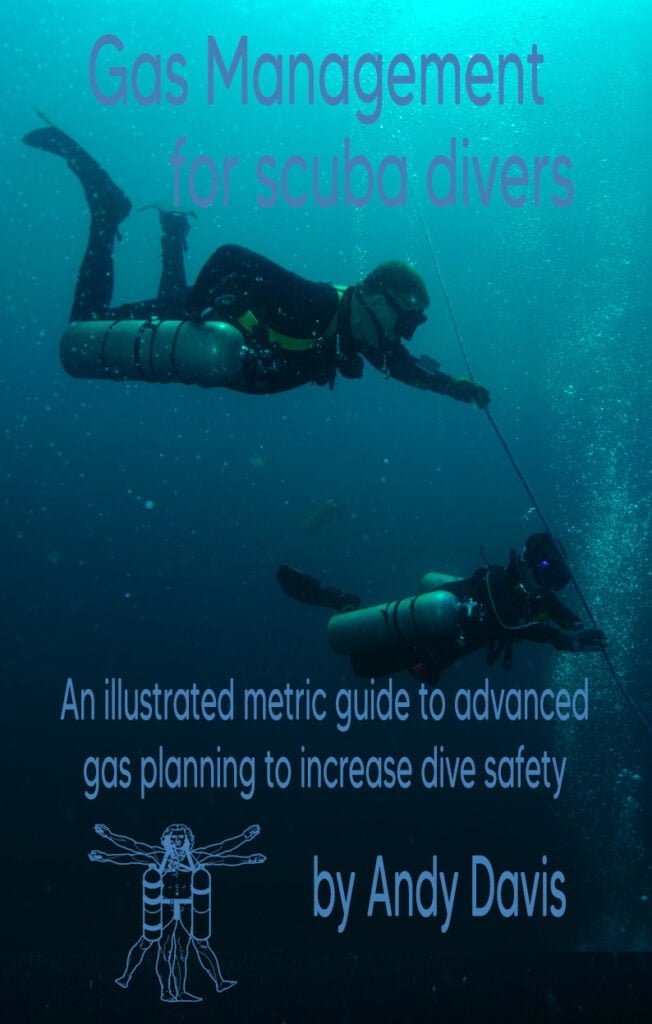
The comprehensive, illustrated, metric guide to advanced gas planning and management for safer scuba diving. Only $9!
60 Pages. Printable PDF format. Fully Illustrated.
Diving Stress Management References:
- Griffiths TJ, Steel DH, Vaccaro P. Anxiety levels of beginning scuba students. Percept Mot Skills. 1978;47:312–4. [PubMed] [Google Scholar]
- Biersner RL, La Rocco JM. Personality and demographic variables related to individual responsiveness to diving stress. Undersea Biomed Res. 1987;14:67–73. [PubMed] [Google Scholar]
- Griffiths TJ, Steel DH, Vaccaro P, Allen R, Karpman M. The effects of relaxation and cognitive rehearsal on the anxiety levels and performance of scuba students. Int J Sport Psychol. 1985;16:113–9. [Google Scholar]
- Morgan WP, Raglin JS, OConnor PJ. Trait anxiety predicts panic behaviour in beginning scuba students. Int J Sports Med. 2004; 25: 314- 22. [PubMed] [Google Scholar]
- Colvard DF. Identifying anxiety and panic risk in divers. DAN-SA diver stress and panic prevention Workshop. 2007 September 27. Johannesburg, South Africa: [cited 2017 September 16] [Google Scholar]
- Raglin S, Stegner J. . Psychobiological aspects of panic in SCBA and SCUBA. International Journal of Sport and Exercise Psychology. 2005; 4: 446- 54. [Google Scholar]
- Mears JD, Cleary PJ. Anxiety as a factor in underwater performance. Ergonomics. 1980; 23: 549- 57. [PubMed] [Google Scholar]
- Morgan WP. Anxiety and panic in recreational scuba divers. Sports Med. 1995; 20: 398- 421. [PubMed] [Google Scholar]
- Bachrach AJ, Egstrom GH, editors. Stress and performance in diving. San Pedro, Ca: Best Publishing Company; 1987. [Google Scholar]
- Colvard DF, Colvard LY. A study of panic in recreational scuba divers. The Undersea Journal. 2003; Q1: 40- 4. [Google Scholar]
- Griffiths TJ, Steel DH, Vaccaro P, Karpman MB. The effects of relaxation techniques on anxiety and underwater performance. Int J Sport Psychol. 1981; 12: 176- 82. [Google Scholar]
About The Author

Andy Davis is a RAID, PADI TecRec, ANDI, BSAC, and SSI-qualified independent technical diving instructor who specializes in teaching sidemount, trimix, and advanced wreck diving courses.
Currently residing in Subic Bay, Philippines; he has amassed more than 10,000 open-circuit and CCR dives over three decades of challenging diving across the globe.
Andy has published numerous diving magazine articles and designed advanced certification courses for several dive training agencies, He regularly tests and reviews new dive gear for scuba equipment manufacturers. Andy is currently writing a series of advanced diving books and creating a range of tech diving clothing and accessories.
Prior to becoming a professional technical diving educator in 2006, Andy was a commissioned officer in the Royal Air Force and has served in Iraq, Afghanistan, Belize, and Cyprus.
In 2023, Andy was named in the “Who’s Who of Sidemount” list by GUE InDepth Magazine.
Purchase my exclusive diving ebooks!
Originally posted 2018-03-07 23:57:03.

